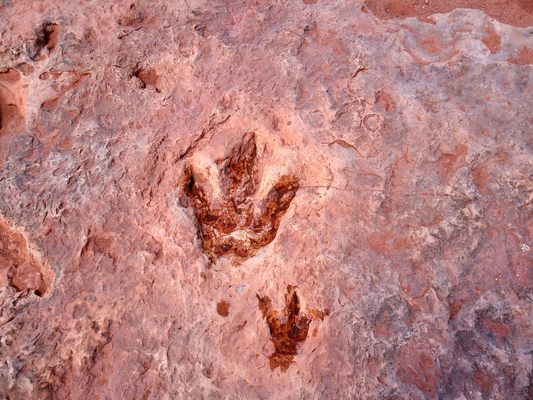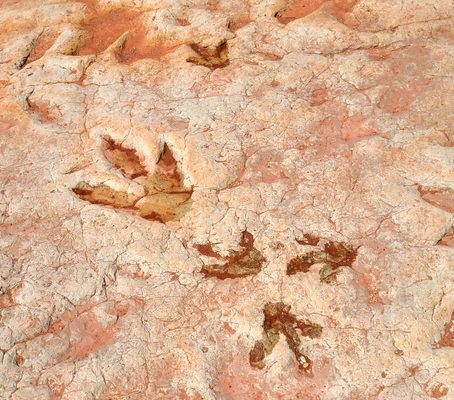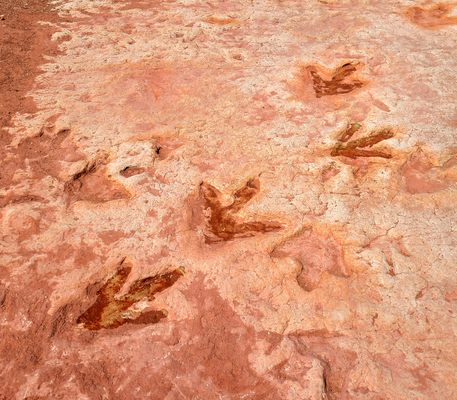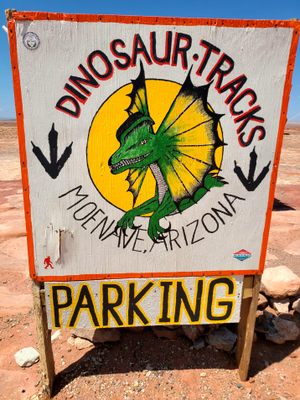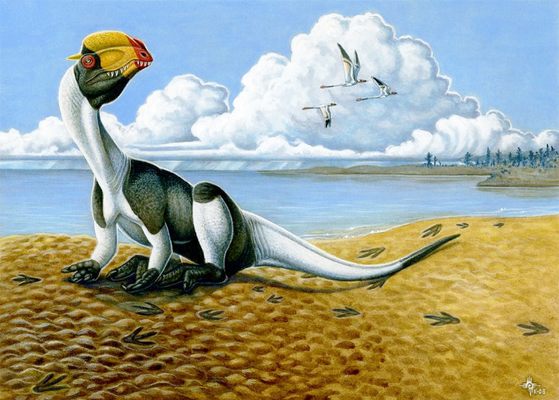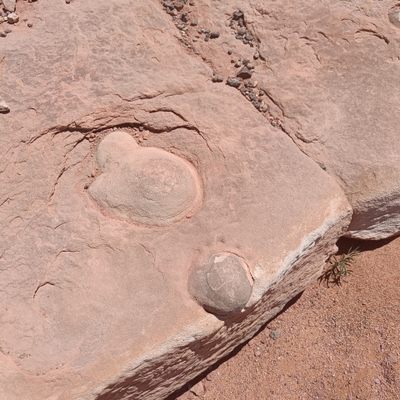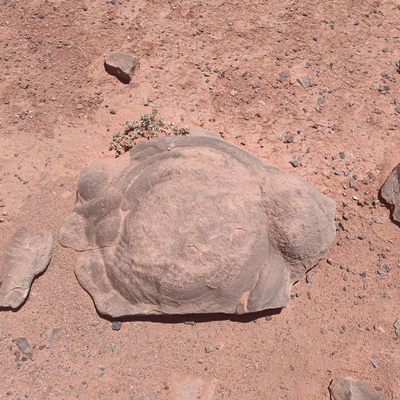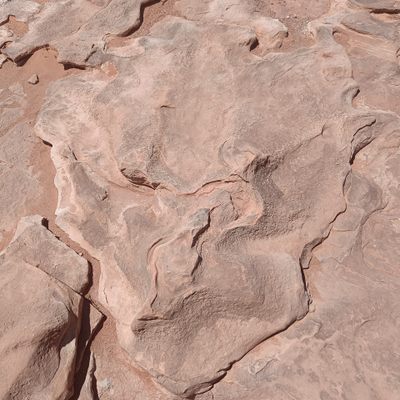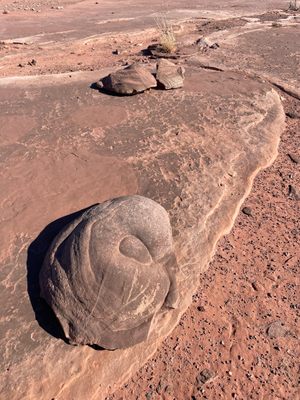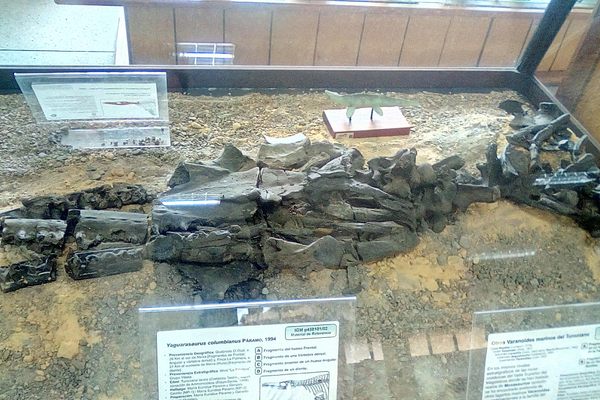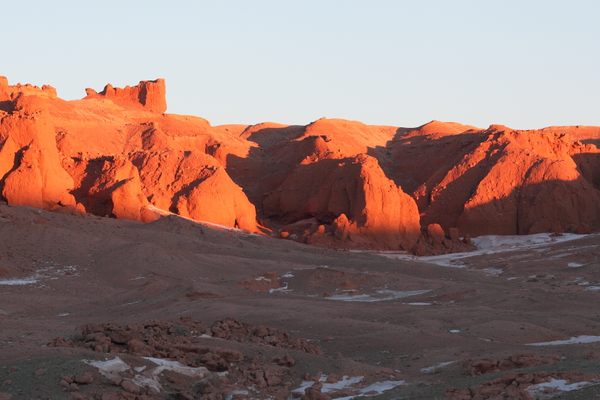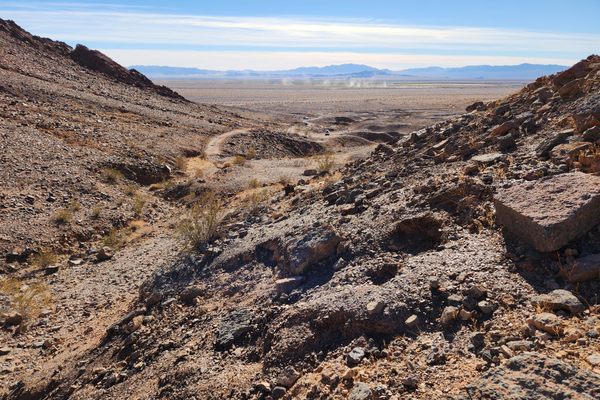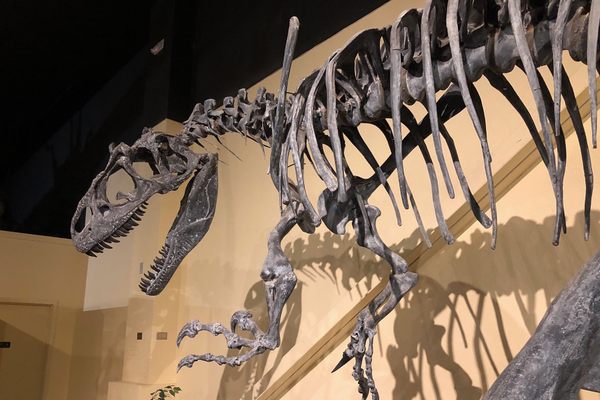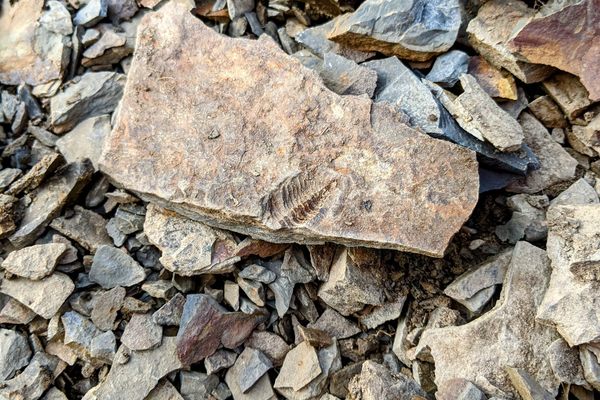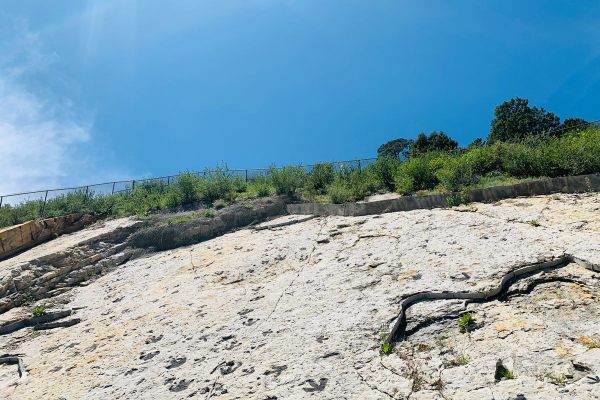About
Today the area around Moenave, Arizona in the Navajo Nation is a dusty, windswept expanse with breathtaking desert landscapes but not a tree or drop of water in sight. About 200 million years ago, however, the area was a marshy riverbed that preserved hundreds of footprints from the dinosaurs that trod across it.
The preserved tracks are from the early Jurassic period. Geologists visiting the site hypothesized that there was likely shallow water flowing over the area when the tracks were made. Some event, possibly a mudslide or the impact of a meteor quickly buried the area and preserved it, and wind and erosion in the millions of years since have slowly uncovered it.
It is not possible to determine with certainty the specific type of dinosaurs that made the tracks at Moenave but experts have made educated guesses. Fossils of Dilophosaurus wetherilli have been found nearby and they would match the time period and size of many of the footprints at Moenave. Fans of the Jurassic Park movies may remember the Dilophosaurus as being shown to expand its neck frills and spit sticky venom, capabilities that there is no actual evidence of the dinosaur having. In actuality, the Dilophosaurus was much larger than portrayed in the Hollywood blockbusters, reaching sizes of up to 23 feet in length and weighing around 880 pounds, the largest known land predator in North America in its time.
Today the site has no official designation or protection. Handmade signs along the highway direct travelers a few hundred yards down a bumpy dirt road to a parking area where local Navajo people have set up small jewelry booths. Visitors are free to wander among the dinosaur tracks on their own but many of the vendors also offer guided tours for a small donation where some of the better-preserved tracks will be pointed out for you.
Related Tags
Know Before You Go
Taking a guided tour from one of the vendors at the site is not necessary, but highly recommended. Keep in mind that though entertaining, the information they give may not be 100 percent scientifically accurate. Donations are highly encouraged as it helps preserve the site.
Community Contributors
Added By
Published
August 26, 2021
